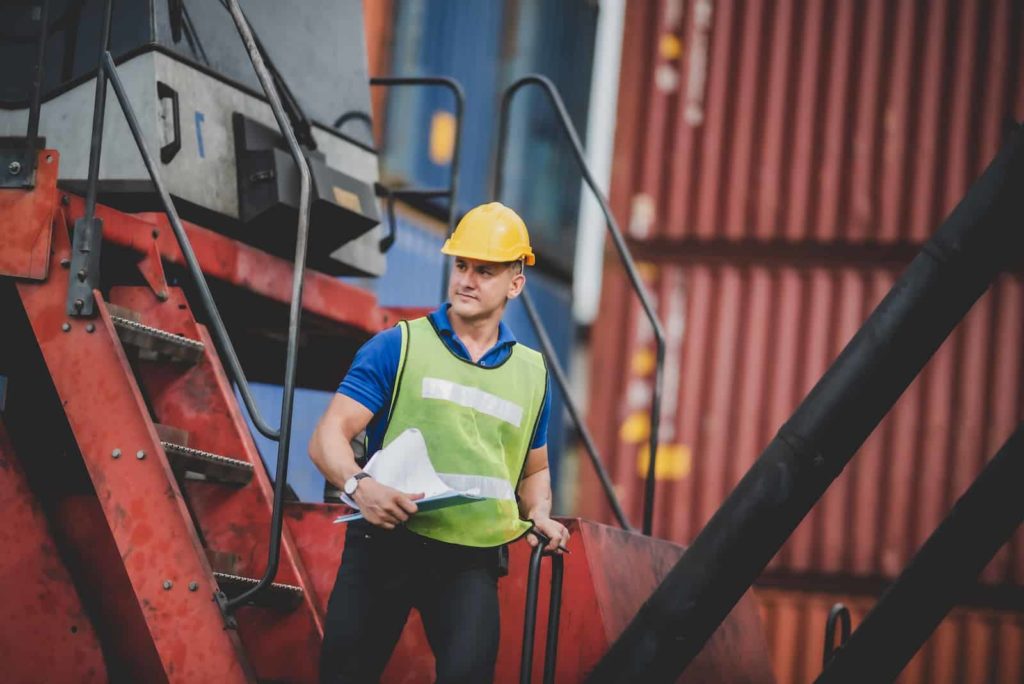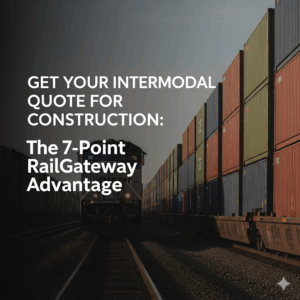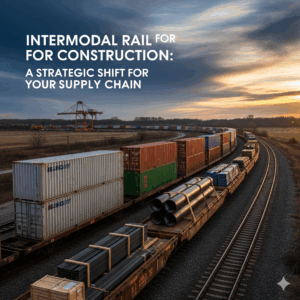How Leading Intermodal Carriers Are Transforming Freight Shipping in 2025
This post was last updated on May 21st, 2025
In today’s rapidly evolving freight landscape, selecting a trusted intermodal carrier has become a strategic decision that directly impacts your supply chain’s efficiency, reliability, and cost control. With increased cross-border trade, rising fuel costs, and a growing emphasis on sustainable logistics, intermodal shipping has become a go-to method for moving goods efficiently over long distances. At the heart of this shipping method lies the intermodal carrier—a specialized service provider that ensures seamless movement of freight across multiple modes of transport, including rail, truck, and sometimes ocean.
An intermodal carrier coordinates complex shipping networks that often span hundreds or thousands of kilometers. These carriers are responsible for safely transporting containers without the need to unload and reload the cargo itself, thereby minimizing handling, reducing the risk of damage, and streamlining operations. Whether you are a small business shipping regionally or a multinational company managing international logistics, choosing the right intermodal partner can be the key to reducing delays, managing costs, and scaling your supply chain efficiently.
In 2025, the demand for intermodal carriers in Canada and North America continues to surge as shippers look for alternatives to congested highways, driver shortages, and volatile trucking costs. Railroads remain the backbone of intermodal shipping, and the most effective carriers have developed close relationships with Class I railways to offer shippers priority access, faster transit times, and competitive rates. With the right intermodal carrier, businesses can move large volumes of goods across provinces or borders while ensuring consistency in delivery timelines and quality control.
Why Shippers Prefer Intermodal Carriers in 2025
There are several compelling reasons businesses are moving more freight with intermodal carriers than ever before:
- Cost Efficiency: Intermodal shipping often costs less than full truckload or less-than-truckload (LTL) alternatives for long-haul routes. Rail transport consumes less fuel and offers a lower cost per mile, making it ideal for bulk freight.
- Reliability: A seasoned intermodal carrier has robust systems in place to handle unexpected delays, weather disruptions, and customs issues. This reliability makes intermodal shipping more predictable than relying solely on road transport.
- Scalability: As your shipping volume grows, an intermodal carrier can scale with you. They offer flexibility in container types, service areas, and schedule coordination—ensuring that your shipping solution evolves as your business does.
- Environmental Impact: Intermodal rail shipping reduces carbon emissions by up to 75% compared to long-haul trucking. Businesses with sustainability goals find this a major incentive to work with experienced intermodal carriers.
Cross-Border Expertise: For companies shipping between the U.S. and Canada, an intermodal carrier with customs and regulatory expertise ensures compliance and quick border clearance.
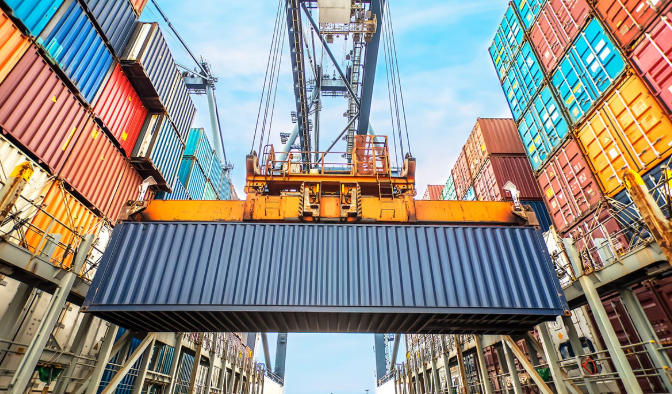
What Is An Intermodal Carrier?
Intermodal carriers might sound complex, but they’re actually companies that simplify your shipping needs. They act as a single point of contact, managing the movement of your goods across different transportation methods – trucks, trains, ships, and even airplanes in some cases. This creates a seamless “integrated supply chain” for your cargo, finding the most efficient and affordable route possible.
Here’s a breakdown of the different transportation modes typically used by intermodal carriers:
- Trucks: The workhorses of intermodal transport, trucks move your cargo between various locations like ports, rail yards, and warehouses.
- Trains: Offering an eco-friendly option for bulky goods over long distances, trains are a key partner for intermodal carriers. They transport containers and trailers on specialized railcars.
- Ships: When it comes to international shipping, ocean carriers take center stage. They transport goods in containers across vast distances, connecting continents.
- Airplanes: Although less common due to cost, air cargo might be used for particularly valuable or time-sensitive goods within an intermodal logistics chain.
By choosing an intermodal carrier, you benefit from optimized logistics, cost reductions, and a smoother overall shipping experience both domestically and internationally.
How Do Intermodal Carriers Work?
Intermodal carriers act like a central figure. Seamlessly integrating different modes of transport like trucks, trains, ships, and even airplanes on occasion to move your goods efficiently and affordably. Here’s a breakdown of their typical operations:
- Planning the Route
It all starts with a strategic plan. Intermodal carriers consider the origin, destination, type of goods, and your specific needs. They then orchestrate the entire journey, leveraging the strengths of each transport mode.
- Initial Pickup
A truck picks up your cargo from the starting point, often your location or a designated warehouse. This is called the “first-mile” pickup.
- Intermodal Terminal
The cargo then travels by truck to a specialized facility, the intermodal terminal. Here, it’s prepped for its next leg, potentially involving sorting, documentation, and secure packaging.
- Switching Modes
At the terminal, your cargo is loaded onto a different mode of transport, like a train or ship. Trains are ideal for long distances due to their efficiency and capacity. International shipments might involve ships or even airplanes.
- Travel and Transfers
Throughout the journey, your cargo might be transferred between modes. Specialized equipment like cranes ensures safe and efficient movement, whether it’s from truck to train, train to ship, and so on.
- Long-Distance Journey
Trains and ships take center stage for this part. They excel at fuel efficiency and transporting large volumes over long distances.
- Final Delivery
Upon reaching its destination, your cargo is unloaded from the long-distance mode, often at another intermodal terminal. Finally, a truck takes over for the “last-mile” delivery to the recipient.
- Further Distribution
If needed, the cargo might be distributed further through regional or local networks to reach its final point.
- Tracking and Security
Intermodal carriers use advanced systems to track your cargo throughout its journey, ensuring it arrives on schedule and in good condition.
- Documentation Experts
They also handle all necessary paperwork, including customs clearance for international shipments. This ensures compliance with regulations specific to each transport mode and destination.
By choosing an intermodal carrier, you benefit from a well-coordinated and efficient shipping experience, with all the complexities handled by a single expert.
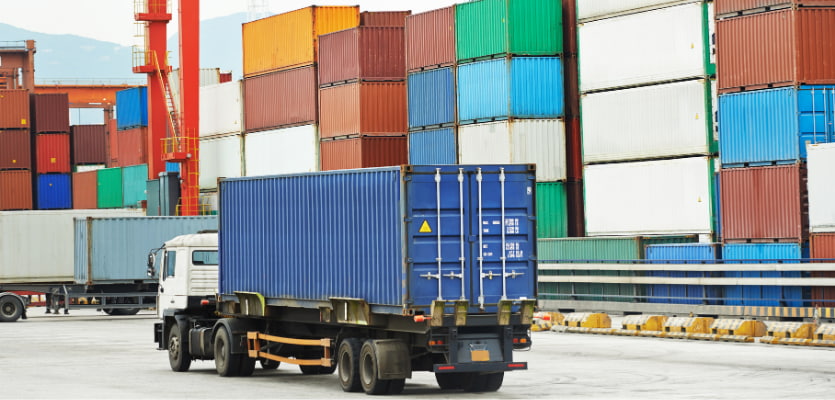
Types Of Intermodal Transportation Services
Railroads play a significant role in intermodal shipping, offering an efficient and economical way to move large volumes of goods over long distances. Here, we’ll explore the two main types of intermodal freight transport that utilize rail:
Container-on-Flatcar (COFC)
This cost-effective method involves loading individual shipping containers directly onto specialized flatcars. These flatcars are designed to accommodate multiple containers, typically four at a time.
Trailer-on-Flatcar (TOFC)
This approach utilizes entire over-the-road trailers (OTRs) placed directly onto flatcars. The trailers remain on the flatcar throughout the rail journey, offering a faster and more straightforward loading and unloading process compared to COFC.
How To Choose A Reliable Intermodal Carrier?
The logistics sector is full of service providers, but not all intermodal carriers are equal. When evaluating your options in 2025, be sure to assess the following:
- Network Coverage: Does the carrier have access to major rail lines and terminals across your target regions?
- Technology Integration: Does the carrier offer visibility tools, EDI/API integrations, and shipment status dashboards?
- Partnerships: Do they have relationships with Class I railroads, drayage providers, and customs brokers?
- Customer Support: Are their logistics teams responsive, proactive, and experienced in managing disruptions?
- Safety & Compliance: Do they adhere to all transportation regulations and maintain a strong record for safe cargo handling?
A high-performing intermodal carrier combines logistics knowledge, technological innovation, and excellent customer service to support their clients’ shipping objectives.
Having explored the key functions of intermodal carriers, it’s crucial to select a provider who aligns with your specific needs. Here’s what to look for beyond the standard services offered:
- Proven Expertise
Choose an intermodal provider with a strong track record in intermodal freight shipping. Their experience ensures a smooth and efficient transportation process for your cargo.
- Cost Advantages
Look for providers who offer competitive rates and volume-based discounts. This can significantly reduce your overall transportation costs, particularly if you have frequent shipments.
- Exceptional Customer Service
A reliable intermodal partner prioritizes excellent customer service. They should be readily available to answer questions throughout the entire shipping process, from initial inquiries to post-delivery follow-up. Don’t hesitate to ask questions!
By considering these additional factors, you’ll be well-positioned to select an intermodal provider who delivers exceptional service and cost-effective solutions for your unique shipping needs.
2025 Intermodal Carrier Trends You Need to Know
As supply chains become more digitized and performance expectations grow, top intermodal carriers are adopting new strategies to stay competitive:
- AI-Powered Optimization: Predictive analytics and machine learning are being used to improve routing decisions, avoid delays, and enhance asset utilization.
- Green Logistics Commitments: Many intermodal carriers are investing in electric drayage trucks and fuel-efficient rail routes to support client ESG goals.
- Increased Cross-Border Integration: With North American trade volumes on the rise, carriers are fine-tuning operations to streamline Canada–U.S.–Mexico flows.
- Smarter Terminals: Automated intermodal terminals are reducing dwell times and increasing cargo throughput, helping shippers move goods faster.
- Risk Management Tech: Enhanced monitoring systems detect theft attempts, container breaches, and environmental hazards in real time.
Common Types of Freight Moved by Intermodal Carriers
The versatility of intermodal carriers allows them to handle a broad range of goods:
- Retail and Consumer Goods: Electronics, apparel, and furniture often move via intermodal networks.
- Food and Beverages: With the help of refrigerated containers, perishables move safely across regions.
- Industrial Equipment: Machinery and heavy goods benefit from intermodal’s secure handling.
- Automotive Parts: Many OEMs rely on intermodal carriers for cross-border delivery of components.
- E-commerce Fulfillment: Growing online demand has led to more intermodal shipments for order consolidation and distribution.
No matter the cargo type, partnering with the right intermodal carrier ensures that your freight is transported safely, cost-effectively, and on schedule.
Conclusion
Why RailGateway Is the Intermodal Carrier of Choice
As you evaluate your logistics partners for the future, one name consistently rises to the top in Canadian intermodal shipping: RailGateway. As one of the top intermodal carrier solutions in the country, RailGateway brings a deep understanding of the Canadian rail network, strong partnerships with both CN (Canadian National Railway) and CPKC (Canadian Pacific Kansas City), and a relentless focus on service, reliability, and innovation. With decades of experience, RailGateway continues to deliver value for businesses shipping goods across Canada and to the United States.
RailGateway’s strategic advantage lies in its integration with Canada’s two largest Class I railroads, CN and CPKC. This dual partnership ensures maximum flexibility in route selection, transit time optimization, and terminal access. Whether you’re moving goods from Vancouver to Toronto or managing high-volume freight from Montreal to Chicago, RailGateway coordinates seamlessly with rail networks to offer consistent, scalable intermodal shipping.
As a trusted intermodal carrier, RailGateway also leverages advanced logistics technology to deliver full shipment visibility. From booking to final-mile delivery, clients receive real-time updates, predictive ETAs, and proactive alerts. This level of visibility is critical for mitigating risk, improving communication across the supply chain, and providing end-to-end control of intermodal movements.
What truly sets RailGateway apart from other intermodal carriers is its customer-centric approach. Every client benefits from dedicated account support, route planning consultations, and flexible pricing structures that reflect current market conditions. The team works closely with shippers to create tailored solutions that reduce costs without sacrificing service levels.
In 2025, security and efficiency are more important than ever. With increased cargo theft, customs complexity, and shifting environmental regulations, RailGateway positions itself as not just a service provider, but a strategic logistics partner. Clients in industries such as consumer goods, retail, construction materials, automotive, and cross-border ecommerce depend on RailGateway for secure, high-volume intermodal shipping across vast geographies.
As shipping demands continue to evolve, RailGateway is investing in the future. Through route digitization, equipment upgrades, and enhanced data tools, RailGateway empowers shippers to make smarter decisions and gain a competitive edge in their industry.
So, whether you’re new to intermodal freight or looking to optimize an existing network, consider RailGateway as your go-to intermodal carrier in 2025. With proven partnerships, unmatched service, and deep rail expertise, RailGateway is ready to help you scale your logistics with confidence.
Your supply chain is only as strong as the partners who power it. Choose the intermodal carrier trusted by businesses nationwide – choose RailGateway.
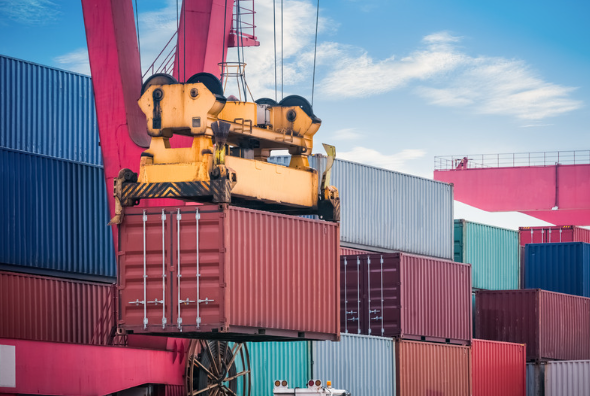
FAQ
1. What is an intermodal carrier?
An intermodal carrier is a transportation provider that moves freight using multiple modes – like trucks, trains, and ships – without handling the cargo itself when switching between modes. These carriers specialize in containerized freight and coordinate across transport networks. Their role is critical in efficient, long-haul logistics.
2. How does an intermodal carrier differ from a traditional freight carrier?
Traditional freight carriers often rely on a single mode of transport, such as trucking or air. In contrast, intermodal carriers orchestrate the movement of cargo across different transportation modes using standardized containers. This allows for greater flexibility, efficiency, and reach in supply chains.
3. What services do intermodal carriers provide?
Intermodal carriers manage the full logistics process, including container booking, drayage (short-distance trucking), rail or ocean leg coordination, and delivery. Many also offer shipment tracking, documentation support, and cargo insurance. Top-tier carriers may integrate warehousing and customs clearance as well.
4. Why choose an intermodal carrier in 2025?
Choosing a trusted intermodal carrier in 2025 means benefiting from streamlined logistics, reduced shipping costs, and enhanced environmental performance. With rising fuel prices and stricter emissions standards, intermodal shipping has become a smart, scalable solution. Leading carriers also offer tech-driven tools for real-time visibility.
5. How do I select the right intermodal carrier for my business?
Start by assessing the carrier’s network coverage, transit time reliability, technology platforms, and customer service reputation. Also look for certifications, partnerships with railroads or steamship lines, and industry experience. A good intermodal carrier will be transparent about service levels and adaptable to your freight profile.
6. Are intermodal carriers suitable for small businesses?
Yes, many intermodal carriers cater to small and medium-sized businesses by offering flexible container options, shared capacity, and support via third-party logistics (3PL) providers. SMBs can now access intermodal shipping benefits without requiring full truckloads or massive volumes.
7. What are the benefits of using an intermodal carrier over trucking alone?
Using an intermodal carrier allows you to reduce freight costs, lower your carbon footprint, and avoid highway congestion. Rail transport, in particular, is more fuel-efficient than long-haul trucking. Additionally, the risk of damage is minimized due to less cargo handling.
8. How reliable are intermodal carriers when it comes to delivery times?
While transit times may be slightly longer than direct trucking for certain lanes, intermodal carriers are highly reliable when planned properly. Delays due to weather or congestion can be mitigated with predictive analytics and proactive communication. Top carriers prioritize schedule adherence and real-time updates.
9. Do intermodal carriers offer temperature-controlled options?
Yes, many leading intermodal carriers offer refrigerated or temperature-controlled container services (often called “reefers”). This is ideal for perishable goods, pharmaceuticals, or electronics that require climate control. Availability can vary by route and region.
10. What trends are shaping the intermodal carrier landscape in 2025?
In 2025, intermodal carriers are increasingly leveraging AI, automation, and IoT to improve shipment visibility and reduce transit time variability. Sustainability, digital transformation, and integrated service models are also redefining customer expectations. As eCommerce and global trade grow, intermodal will play a bigger role than ever.
How We Can Help
For businesses looking to optimize their freight shipping with reliable, efficient, and cost-effective solutions, RailGateway.ca is your trusted partner in intermodal logistics. Whether you’re new to freight trains or want to enhance your existing supply chain, our team of intermodal experts is ready to guide you every step of the way.
Contact RailGateway.ca today for a free quote or to speak directly with one of our experienced intermodal specialists. Let us help you unlock smarter, smoother shipping solutions tailored to your unique needs.
Visit RailGateway.ca or call us to get started on transforming your freight shipping strategy in 2025 and beyond.

